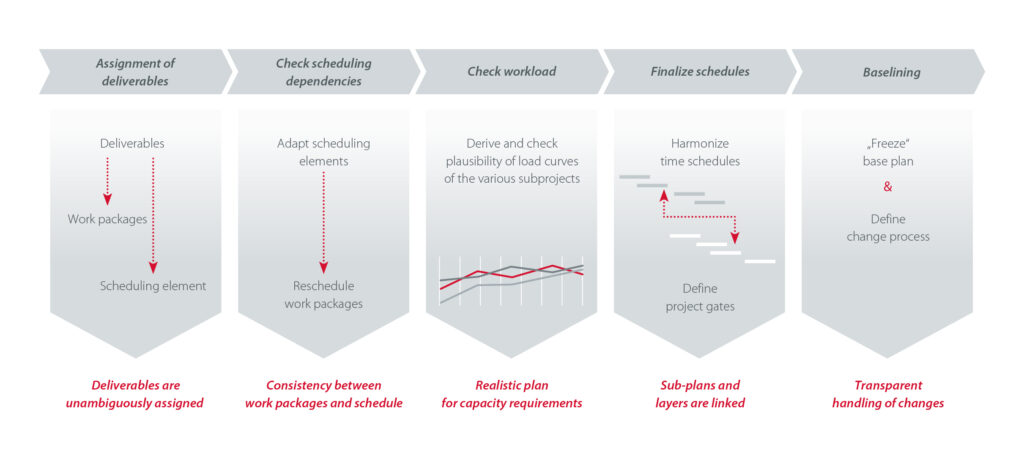“Correct” measurement of project progress
Typically, all relevant planning elements are available. However, in many cases these are not sufficiently detailed and connected to another. For a resilient overall planning various prerequisites must be fulfilled:
-
All deliverables are defined
-
Scheduling interdependencies are considered
-
Work packages with measurable results and deadlines
-
Capacity and resource planning based on work packages
Integrated planning is usually a major challenge because responsibilities at the interfaces for tasks and costs are often unclear and effort is only estimated based on experience.
Measurable progress with budget consumption (Earned-Value Analysis)
Ideally, progress is determined based on defined work packages. These contain a clear description of the deliverables and their planned dates, as well as the corresponding planned efforts and costs. On this basis, the degree of completion per work package and thus the overall progress of the project can be clearly determined. Although many projects could adopt Earned-Value Analysis, it is not often used. This leads to unreliable scheduling and cost forecasts, which only becomes transparent at high-level project milestones.
TARGUS has developed a systematic approach which ensures that all deliverables are recorded and clearly assigned to scheduled work packages. The result is an overall plan coordinated between the project and the line organization, which serves as the basis for integrated progress and cost controlling.

Project results
-
Resilient and realistic planning
-
Coordinated interfaces and deliverables
-
Integrated cost and progress controlling
